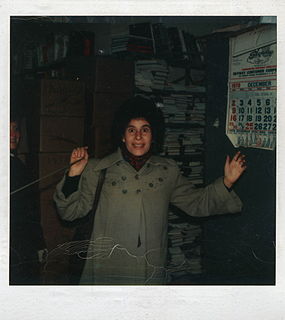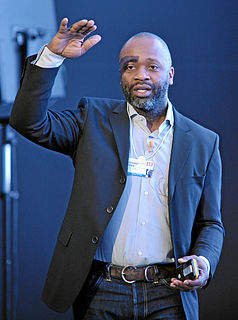A Quote by Rachel Cusk
For me, a novel is always the result of my attempt to impose myself on raw circumstances. It is a concrete form of lived experience.
Related Quotes
In every remodelling of the present, the existing condition of things must be supplanted by a new one. Now every variety of circumstances in which men find themselves, every object which surrounds them, communicates a definite form and impress to their internal nature. This form is not such that it can change and adapt itself to any other a man may choose to receive; and the end is foiled, while the power is destroyed, when we attempt to impose upon that which is already stamped in the soul a form which disagrees with it.
For me words still possess their primitive, mystical, incantatory powers. I am inclined to use them as part of an attempt to make my own reality more real for others, as part of an effort to transcend emotional danger. For me, words are a form of action, capable of influencing change. Their articulation represents a complete, lived experience.
It is a conquest when we can lift ourselves above the annoyances of circumstances over which we have no control; but it is a greater victory when we can make those circumstances our helpers,--when we can appreciate the good there is in them. It has often seemed to me as if Life stood beside me, looking me in the face, and saying, "Child, you must learn to like me in the form in which you see me, before I can offer myself to you in any other aspect.
No writer, I believe, should attempt a novel before he is thirty, and not then unless he has been hopelessly and helplessly involved in life. For the writer who goes out to find material for a novel, as a fishermen goes out to sea to fish, will certainly not write a good novel. Life has to be lived thoughtlessly, unconsciously, at full tilt and for no purpose except its own sake before it becomes, eventually, good material for a novel.
... A CLOCKWORK ORANGE- and I said: 'That's a fair gloopy title. Who ever heard of a clockwork orange?' Then I read a malenky bit out loud in a sort of very high type preaching goloss: '- The attempt to impose upon a man, a creature of growth and capable of sweetness, to ooze juicily at the last round the bearded lips of God, to attempt to impose, I say, laws and conditions appropriate to a mechanical creation, against this I raise my swordpen-
I always used to suffer a great deal if I let myself get too close to reality since the definitive world of the everyday with itshard edges and harsh light did not have enough resonance to echo the demands I made upon experience. It was as if I never experienced experience as experience. Living never lived up to the expectations I had of it--the Bovary syndrome.
Madly, futilely, I wrote novel after novel, eight in all, that failed to find a publisher. I persisted because for me the novel was the supreme literary form - not just one among many, not a relic of the past, but the way we communicate to one another the subtlest truths about this business of living.







































